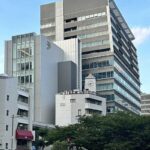GDP up 2.3% in Q2 as new PM takes office
- Thailand’s economy grew 2.3% in Q2 compared to the same period last year
- GDP growth aided by government spending and exports growth
- Private consumption increased 4.0%, slowing from the prior quarter
- Exports of services rose 20%, goods exports up 1.9%
- Public and private investment shrank in Q2
- Manufacturing sector returned to growth, construction and agriculture contracted
- Thai economy grew 1.9% in H1, revised forecast 2.3%-2.8% from 2.0%-3.0%
- Bank of Thailand: uneven economic recovery
- Tourism, domestic consumption, and goods exports to boost economy this year
- Newly-elected PM may review cash handout program for compliance with fiscal discipline laws
- Capital Economics expects Thai economy to slow in coming quarters
- Central bank expected to keep rates on hold at upcoming meeting
Thailand’s economy showed signs of improvement with a 2.3% growth in the second quarter compared to the same period last year, but uncertainty persists due to political changes and potential alterations in fiscal policy. The Office of the National Economic and Social Development Council reported that GDP growth was aided by government spending and exports growth. Private consumption increased 4.0%, while public and private investment shrank during the April-June period. Manufacturing returned to growth, but construction and agriculture contracted. The Bank of Thailand expects the Thai economy to grow 2.5% this year with subdued inflation. However, Capital Economics predicts a slowdown in coming quarters due to potential budget delays and changes in fiscal policy.
Factuality Level: 8
Factuality Justification: The article provides accurate information about Thailand’s economy growth, citing official data from the Office of the National Economic and Social Development Council and expert opinions from economists. It discusses various factors affecting the economy such as political uncertainty, tourism, consumer spending, inflation, and monetary policy. The article also mentions the impact of the new prime minister on the economy and potential changes in fiscal policies. While it does not delve into excessive details or personal opinions, it presents a balanced view of the situation.
Noise Level: 7
Noise Justification: The article provides relevant information about Thailand’s economy growth and its forecast revision but includes some repetitive information and relies on expert opinions without providing strong evidence or in-depth analysis.
Public Companies: Bank of Thailand (N/A), CIMB (N/A)
Key People: Paetongtarn Shinawatra (Prime Minister), Shivaan Tandon (Economist at Capital Economics), Chew Khai Yen (Analyst at CIMB), Michelle Chia (Analyst at CIMB)
Financial Relevance: Yes
Financial Markets Impacted: Thai economy, exports, government spending, private consumption, public and private investment, manufacturing, tourism sector, central bank’s monetary policy
Financial Rating Justification: The article discusses Thailand’s revised GDP growth forecast, the impact of political uncertainty on the economy, and potential changes in fiscal policies. It also mentions the Bank of Thailand’s monetary policy and its possible effects on financial markets and companies in the country.
Presence Of Extreme Event: No
Nature Of Extreme Event: Other
Impact Rating Of The Extreme Event: Minor
Extreme Rating Justification: There is no extreme event mentioned in the text, but the article discusses Thailand’s economic growth and political uncertainty due to a change in leadership. The impact of this situation is considered minor as it does not involve significant deaths, injuries, or damage to infrastructure.
Move Size: The market move size mentioned in the article is a revision of Thailand’s annual growth forecast from 2.0% to 3.0% previously to 2.3% to 2.8% now.
Sector: All
Direction: Up
Magnitude: Medium
Affected Instruments: Stocks, Bonds
 www.wsj.com
www.wsj.com 





